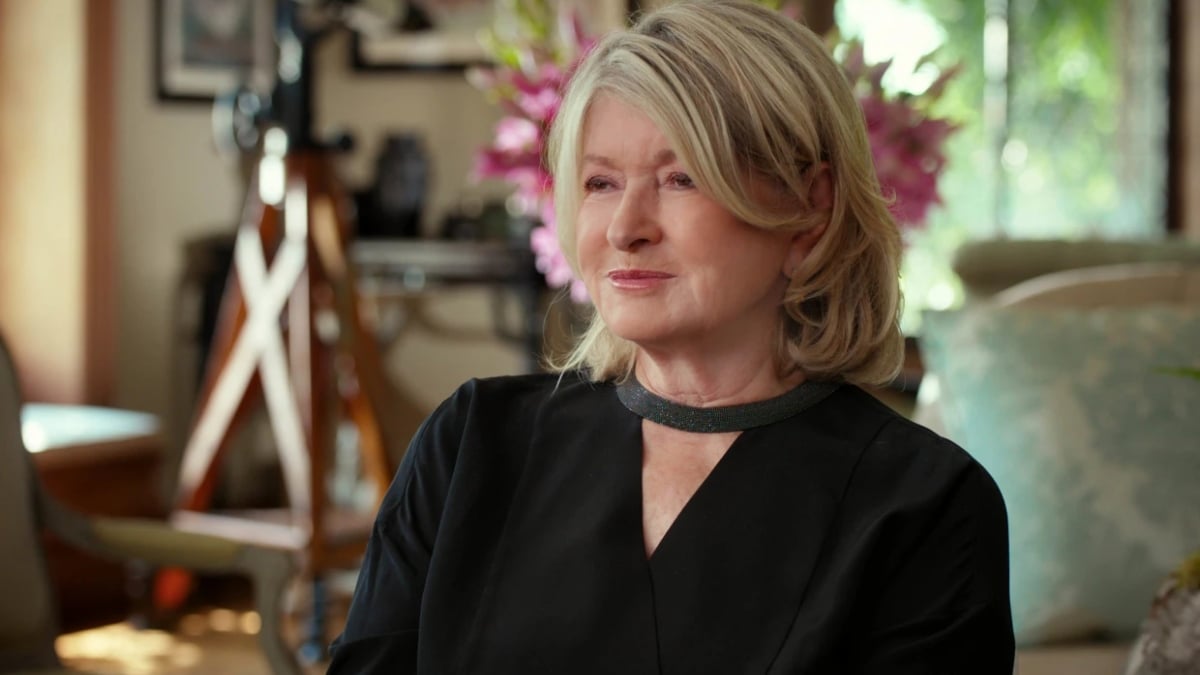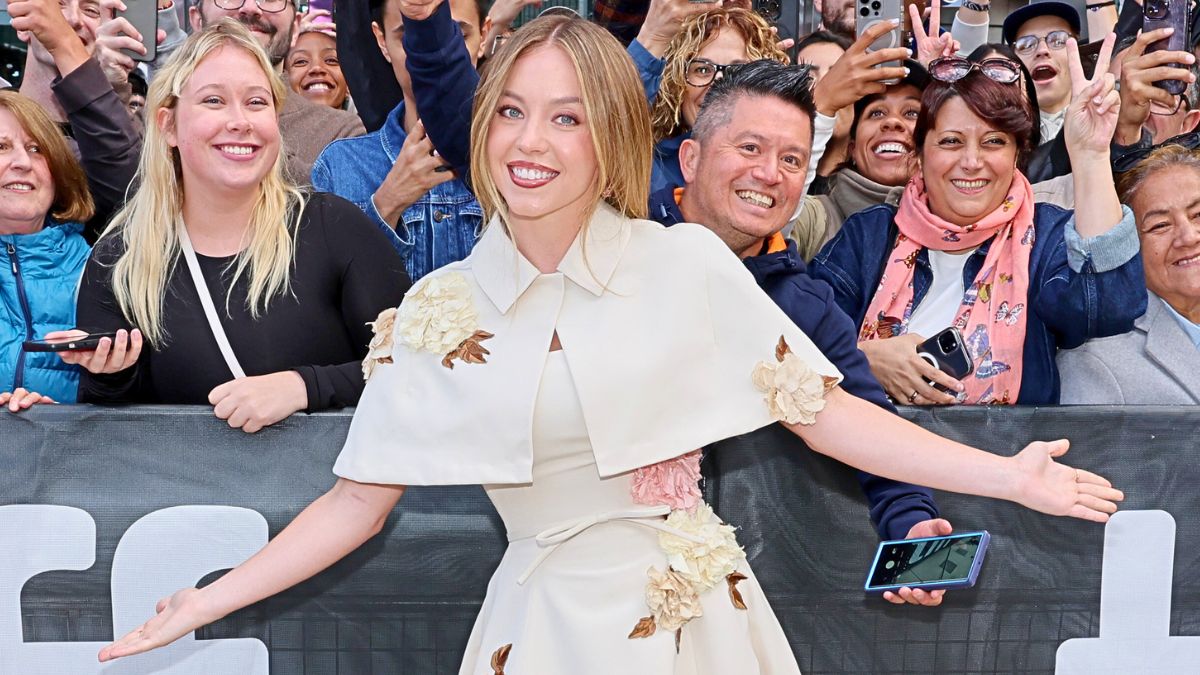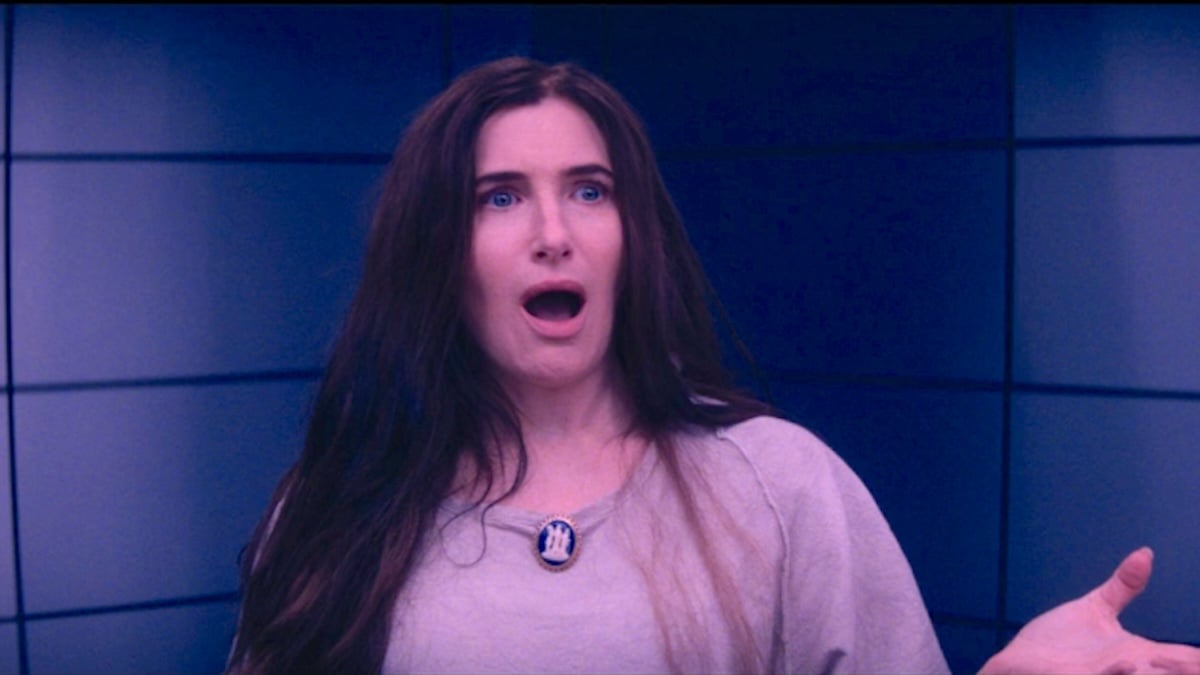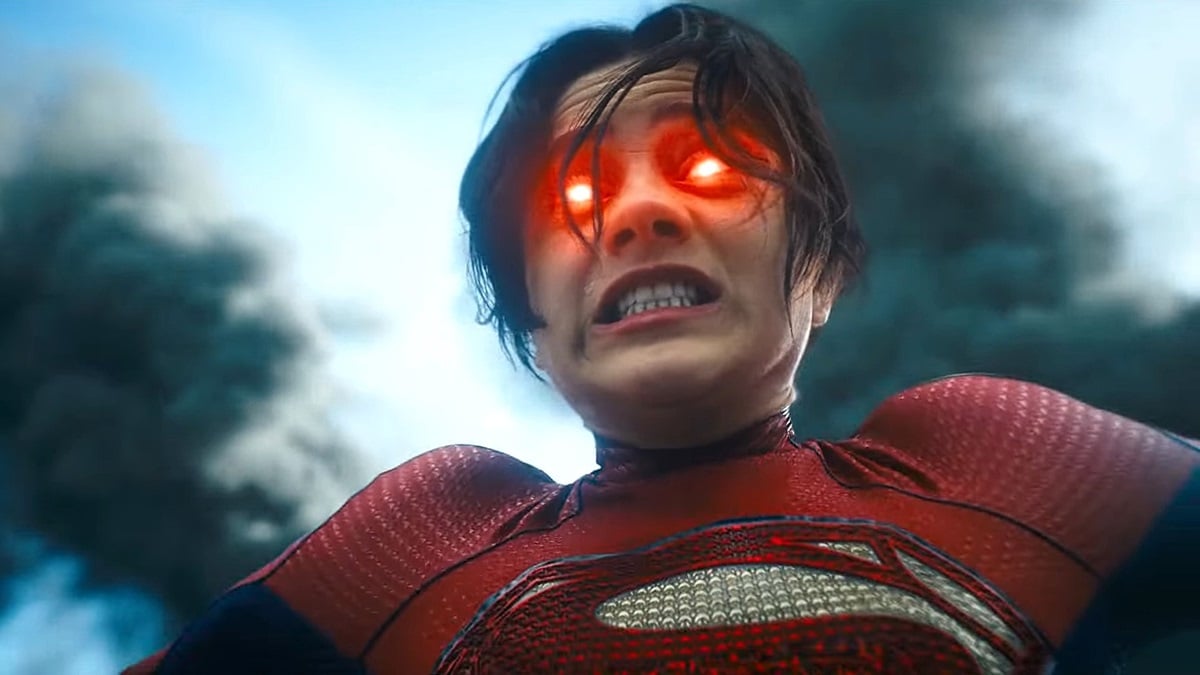
I’ve always thought that Thomas Jane deserved more frequent zany roles, which The Veil certainly provides for him – it’s just a shame his twisted charisma will most likely go unnoticed. Phil Joanou’s cultish thriller (penned by Robert Ben Garant) is the latest Blumhouse indie to be unceremoniously dumped straight to Netflix, like last year’s backlog purge that included Mockingbird, Mercy, and a few other buried thrillers. But it’s not without reason, as questions of quality are answered within the film’s dreary first few scenes, even with Jessica Alba leading the show. Spiffy cultist ideas shine through, mixed with a supernatural story, but Joanou’s vision is the blandest shade of grey imaginable – or, in this case, visibly seen as a color-blocking filter in every shot.
Abla plays a filmmaker named Maggie Price, who returns to where her FBI agent father stumbled upon the largest mass-suicide in history, at the Heaven’s Veil compound. Led by a figure known as Jim Jacobs (Thomas Jane), a quiet day in 1985 saw the death of every man, woman, and child under Jacobs’ guidance. Fast forward to Price’s reality, and she returns to the crime scene with the group’s only known survivor that day, Sarah Hope (Lily Rabe). In search of answers, Price and her crew stumble upon a pile of old film recordings that reveal Jacobs’ plans, but their poking awakens an evil force. There’s far more to that fateful day than police reports show, and Maggie Price is about to find out the hard way.
So begins a film with a unique focus on the passage between life and death, but Joanou’s cinematic execution simply can’t keep up with Garant’s more invigorated screenplay. Locations boasting lush, natural scenery are soaked in a neutral, lifeless grey hue that strips horrors of any and all character, only worsening when actors faces can’t show a distinguishable skin tone. The Veil‘s intentionally black-and-white flashbacks are indistinguishable when sandwiched between equally mute colors schemes, existing as a tonal comparison to much livelier films such as Todd Strauss-Schulson’s The Final Girls – a gem that benefits from vivid, eye-catching designs.
Yet Garant’s screenplay is not without faults, as each advancing plot detail hinges on terrible, obvious decisions that each character happens to make. It’s the kind of cinematic logic that’ll have die-hard fans yelling at their television sets over, as single individuals break off from the group or continue to risk their lives for absolutely no logical reason. Sure, just ignore the spooky noises and spiritual blurs while you sit inside a creepy abandoned cabin that continually loses power. Closure is one thing, but what’s the use if your newfound serenity comes at the expense of death? And unleashing a ghost army of dead cultists on the world.
Thomas Jane is the only performer who walks away from this nightmare unscathed, taking the form of a linen-wearing, existentialist preacher-type who claims to have cracked the afterlife’s code. His long-winded but enthralling monologues are loaded with soothing notes of blind faith, as he proclaims to have discovered a path to rebirth. It’s the kind of genre role that comes across as wildly goofy upon initial establishing shots, but Jim Jacobs’ enthusiastic teachings permit for an uninhibited Jane – one who raises hairs at the mention of “dead f*#king sould eaters.” Jane embodies his middle-America stereotype, but the likes of Alba, Rabe and more are mere genre pawns lacking genuine personality.
Scares come at a minimum, and the ones that do offer a jolt simply aren’t earned. Joanou loves to slow-pan onto something inanimate before having it jump alive, which becomes a nail-biting bit of frustration as we sniff scares like fresh-baked cookies from the room over. Tension loses itself in The Veil‘s sullen, sulky delivery, and overly-cocky characters slowly find themselves offed one by one (immediately after walking away, alone). Long, brooding strolls down foggy forest paths are stitched together like a quilt made from hammy-down pieces of used cloth, as Joanou struggles to find his own directorial voice throughout the film’s entirety. Garant’s words cry out for individuality, but they’re met with simple genre generics that hold back the seedier backwoods haunter that sadly could have been.
While The Veil might sound like a ghastly reincarnation of the Jonestown massacre, it’s nothing but another mindless sheep stuck in a massive herd. Thomas Janes rambles on in the most frighteningly enlightened of ways, but his controlling dramatics aren’t enough to fight through a weightless delivery that underwhelms and bores. You may call to a higher power, but your prayers won’t be answered by the cinema Gods (or Jessica Alba) this time – that I can promise.







Published: Jan 25, 2016 06:44 pm